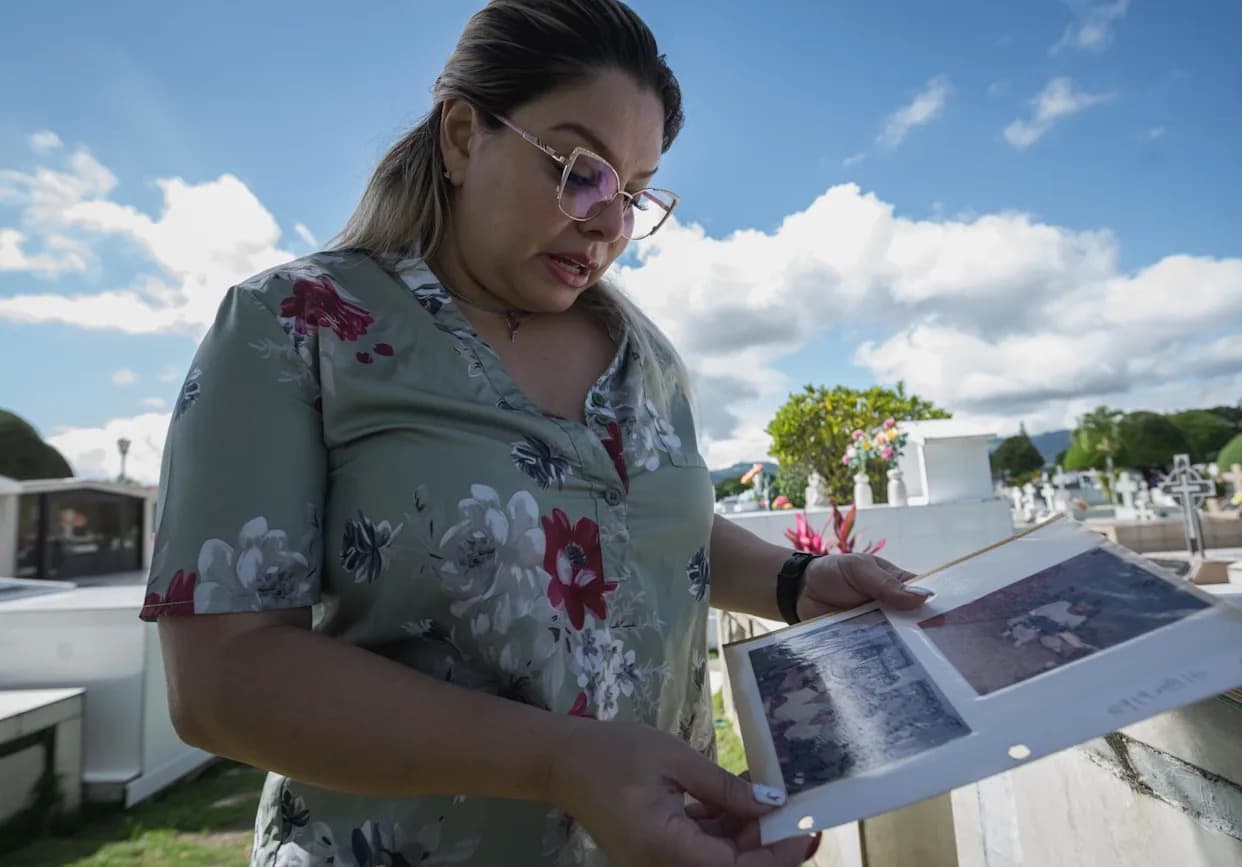A missing formal removal order from an October 2019 immigration decision may let Kilmar Abrego Garcia seek new protections or be released from custody. Judge David Jones found Abrego likely would be persecuted if returned to El Salvador but did not apparently issue a written order specifying removal. U.S. District Judge Paula Xinis pressed the government for clarity about third-country options after plans to send Abrego to Costa Rica fell apart and officials proposed Liberia instead.
Missing 2019 Deportation Order Could Free Kilmar Abrego Garcia

GREENBELT, Maryland — A procedural lapse in a 2019 immigration decision may give Kilmar Abrego Garcia a pathway to new protections or release from detention, judges heard at a federal court hearing. Abrego, an undocumented Salvadoran who was mistakenly deported to an anti-terrorism prison in El Salvador and later returned to the U.S. under a court order, now faces criminal charges tied to alleged migrant smuggling.
Central legal issue: no formal removal order
At the core of Thursday’s proceedings was a finding that Baltimore Immigration Judge David Jones, in an October 2019 ruling, concluded Abrego would likely face persecution if returned to El Salvador but never issued a formal written order of removal specifying where he should be deported. U.S. District Judge Paula Xinis emphasized the legal importance of a written removal order: “There is no order of removal in the docket, in the record,” she said. Without a final order, Abrego’s attorneys argue he may be able to pursue new asylum protections or other relief that would not be available if a removal order existed.
Government response and procedural debate
Deputy Assistant Attorney General Drew Ensign told the court that Jones’ decision implicitly functioned as a removal order and described the absence of a written order as a technicality. Judge Xinis rejected that gloss, pressing the government on whether the judge’s ruling satisfied the legal requirement for a formal order. Abrego’s lawyer, Andrew Rossman, argued the missing documentation is a due-process problem that could undermine the government’s actions.
Where could Abrego be sent?
Another major dispute at the hearing involved which country could accept Abrego if deportation proceeds. After his return to the U.S., a previously discussed plan would have sent Abrego to Costa Rica, an option his lawyers said would be acceptable. That understanding collapsed after Abrego refused to plead guilty in the criminal case. The government now proposes several African countries, with Liberia identified as the current plan — a nation with which Abrego has no cultural, familial or other ties.
John Cantu, acting assistant director for removal operations at Immigration and Customs Enforcement, testified about diplomatic efforts to secure a third country willing to accept Abrego. Cantu said his knowledge was limited to a brief, prepared statement from a State Department attorney; Judge Xinis criticized his testimony as uninformative and part of a pattern of the government failing to produce witnesses fully versed in third-country negotiations.
Possible retaliation and pending contempt request
Abrego’s lawyers have suggested the government’s insistence on African destinations represents retaliation for the embarrassment caused by the earlier illegal deportation and his refusal to plead guilty. Judge Xinis did not adopt that conclusion outright but described the government’s refusal to provide a clear explanation for Costa Rica’s unavailability as “odd.” The court also has a pending request seeking contempt sanctions against the government for allegedly defying earlier orders related to Abrego’s removal to El Salvador.
What happens next?
For now, Abrego remains in immigration detention in Pennsylvania under an earlier order from Judge Xinis that blocks his deportation. Even if the judge orders his release, Abrego faces a criminal trial in Nashville scheduled to begin in January on charges tied to alleged migrant smuggling. Judge Xinis warned both sides that a decision on the missing removal order and other issues will take time and again urged the government to consider reaching a negotiated solution; she noted Abrego has indicated he would still consider going to Costa Rica.
Key names: Kilmar Abrego Garcia (respondent), David Jones (immigration judge, 2019 ruling), Paula Xinis (U.S. District Judge), Andrew Rossman (Abrego counsel), Drew Ensign (Deputy Assistant Attorney General), John Cantu (ICE acting assistant director).
Help us improve.


































